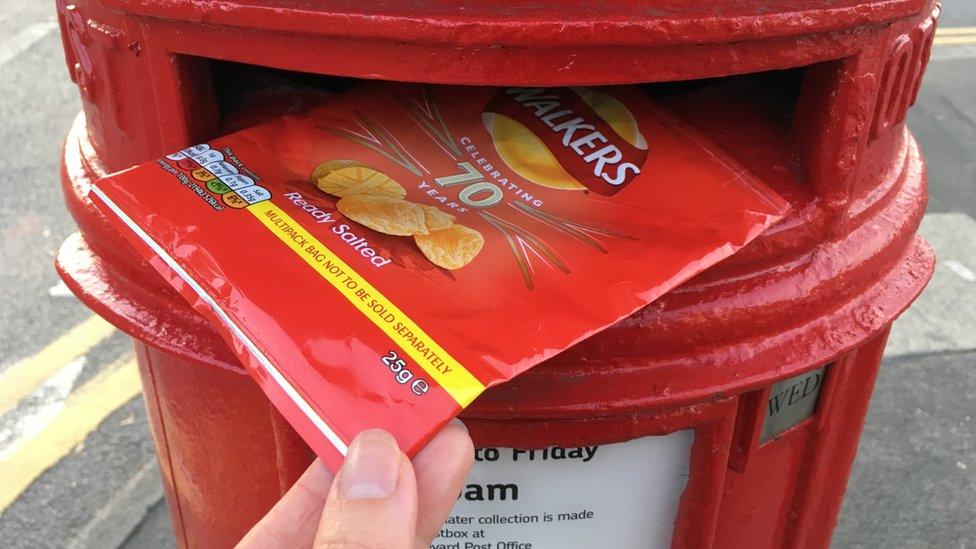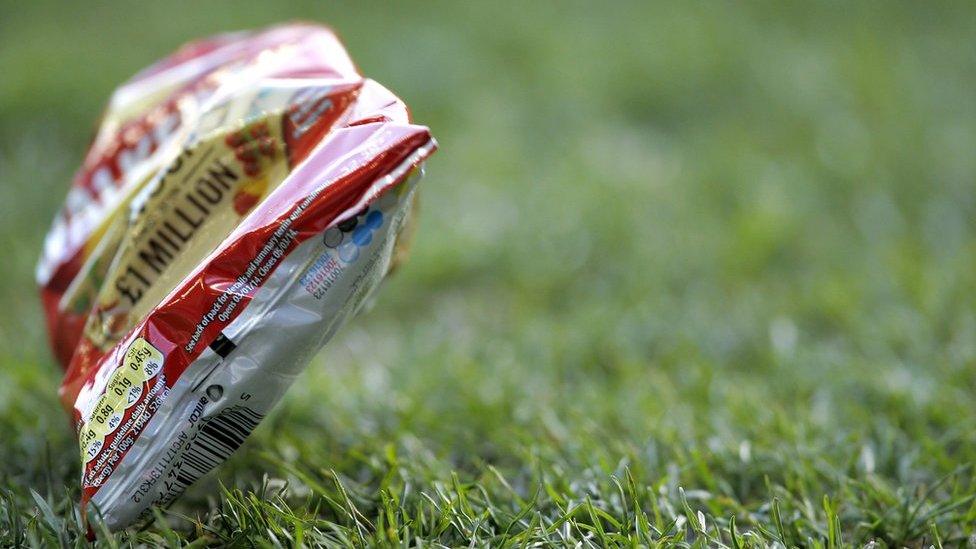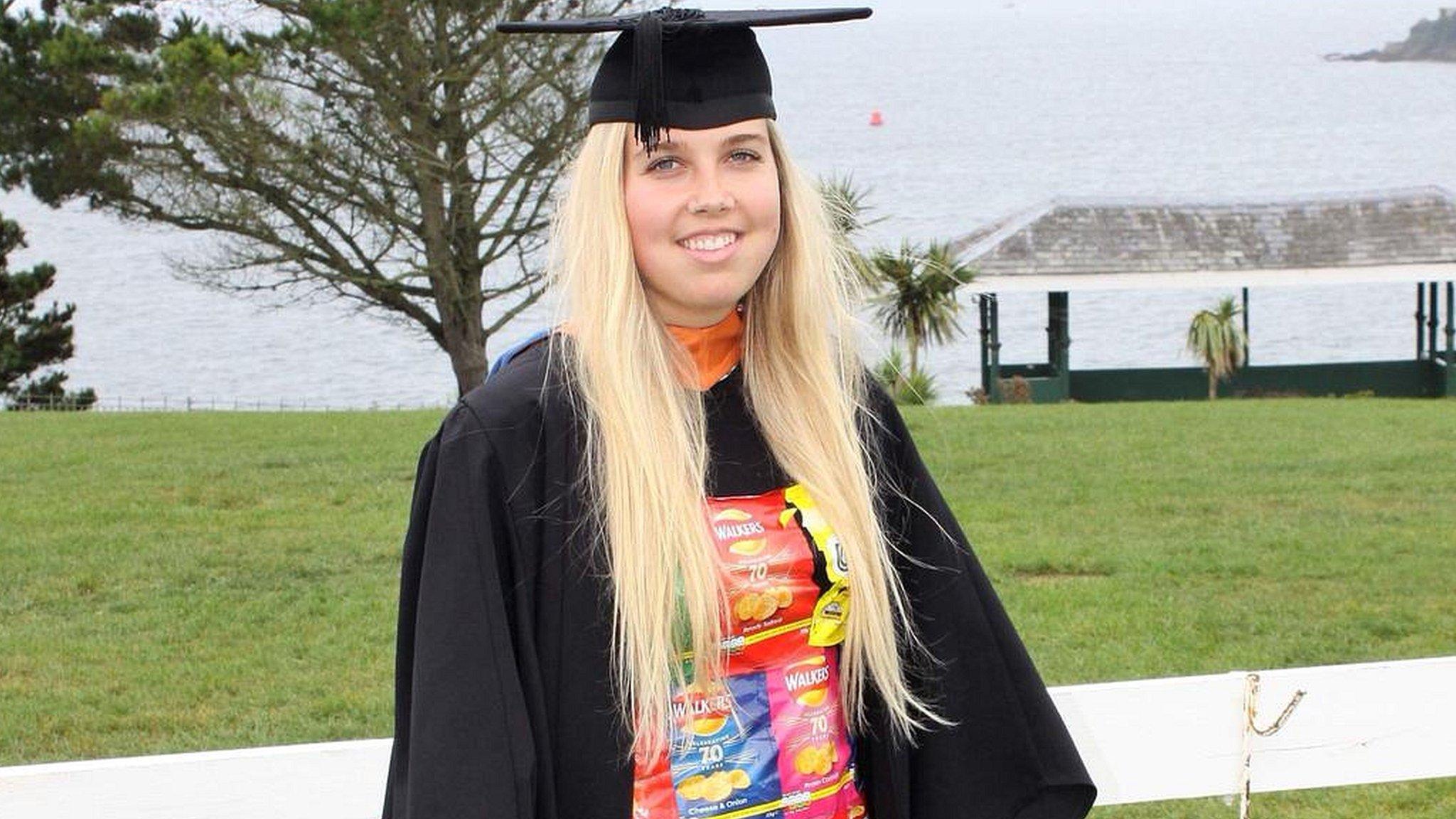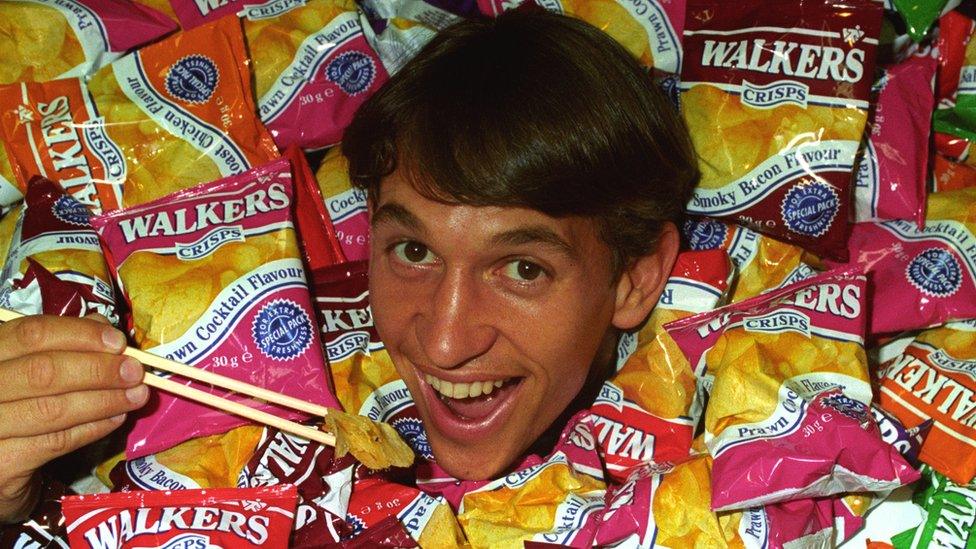Royal Mail: Stop posting crisp packets without envelopes
- Published
- comments

Royal Mail is obliged by law to deliver packets to Walkers' freepost address
Royal Mail has stepped into a row between campaigners and crisp makers Walkers - by urging people posting empty packets to put them in envelopes.
Campaigners asked people to post the non-recyclable plastic bags and "flood Walkers social media with pictures of us popping them in the post".
Royal Mail is obliged by law to deliver the bags to Walkers' freepost address.
But without envelopes they cannot go through machines and must be sorted by hand, causing delays.
A Royal Mail spokesperson said: "We strongly encourage customers not to post anything into the postal system which is not properly packaged.
"Crisp packets can't go through the machines, they are not normal mail items therefore my hardworking colleagues need to manually sort them, which adds to time."
Allow X content?
This article contains content provided by X. We ask for your permission before anything is loaded, as they may be using cookies and other technologies. You may want to read X’s cookie policy, external and privacy policy, external before accepting. To view this content choose ‘accept and continue’.

People have been taking selfies of themselves posting the crisp packets and putting them on social media with the hashtag #PacketInWalkers.
It follows a petition hosted by 38 Degrees which called for Walkers to make their packets recyclable.
Cathy Warren, campaigner at 38 Degrees, said: "Royal Mail have asked people to use envelopes when posting crisp packets and we will update the thousands of Walkers's customers who are taking part.
"Up and down the country, people are telling Walkers to step up when it comes to plastic waste.
"Walkers produce a staggering 7,000 plastic crisp packets a minute which they don't pay a penny to clean up. They need to listen to their customers and take action now."
Royal Mail said it had handled about 30 crisp packets so far.

Are the alternatives any better?

Walkers crisps are packaged in metallised plastic film
Susan Selke, director of the School of Packaging at Michigan State University, said crisps needed a very good oxygen barrier because of their high fat content and other packaging alternatives may have greater overall environmental impacts.
"From looking at the Walkers website, it appears that their packaging is similar to that used for the majority of snack foods," she said.
Such products are commonly packaged in metallised PET or metallised PP, which are both metallised films.
"Because of their fat content and the potential for rancidity, chips [crisps] need a good oxygen barrier," said Dr Selke.
"The old alternative was paper or plastic laminated to aluminium foil, usually coated on the inside with a plastic layer for heat-sealing. This structure would also not be accepted for recycling in most cases, is much heavier, and will have greater overall environmental impacts, for a variety of reasons, so it would not be an improvement."
She said more rigid packaging could be used to provide a good oxygen barrier but this would result in more material being used.
"Several studies have shown that most of the environmental impact comes at the production end, not the disposal end, so again overall environmental impact would likely be increased with these alternatives, even if recycling went up," said Dr Selke.

Walkers said its packaging had been designed to keep its snacks fresh and prevent food waste.
The Leicester-based crisp manufacturer confirmed it had started receiving crisp packets and claimed it would use them "for research".
"We recognise the efforts being made to bring the issue of packaging waste to our attention," a spokesperson added.
"The returned packets will be used in our research, as we work towards our commitment of improving the recyclability of our packaging."
It has pledged to make all its packaging 100% recyclable, compostable or biodegradable by 2025.
It is piloting compostable packaging in the US, India and Chile.
- Published18 September 2018

- Published17 April 2018

- Published8 October 2010